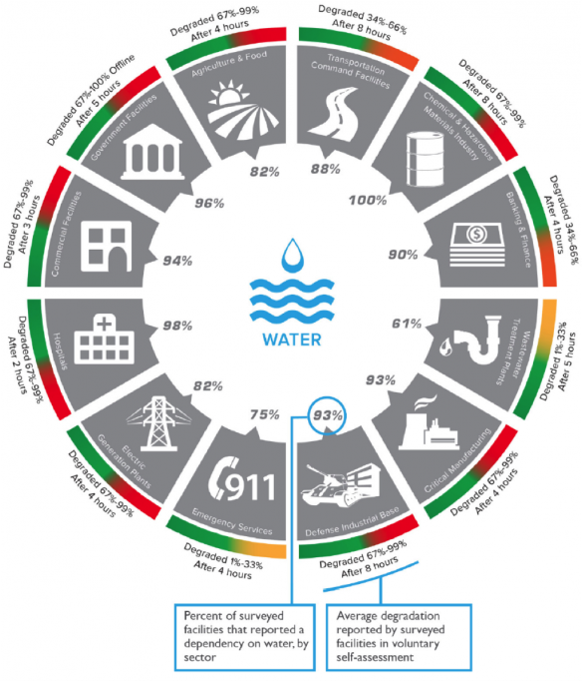DRINKING WATER WORKING GROUP
The Drinking Water Working Group is a committee of 22 water quality, public health, and local government professionals convened by the UNC School of Government to develop a guide for North Carolina local governments to respond in the event of a drinking water incident.

Source: National Infrastructure Advisory Council (NIAC) Report on Water Sector Resilience. July 2016
Purpose
Drinking water incidents such as floods, infrastructure failures, or contaminants may create real or perceived threats to the safety of drinking water across North Carolina. The purpose of the Drinking Water Working Group is to compile a toolkit of resources to assist local governments when they must respond to such incidents.
Other toolkits exist, but none that are tailored to local governments in North Carolina. The Drinking Water Working Group’s aim is to develop a toolkit that is succinct, practical, and specific to North Carolina’s needs.
Working Group Membership
The Drinking Water Working Group is composed of subject matter experts, local government officials, and public health professionals from all around the state. Participants include staff members of the NC Department of Environmental Quality, the NC Division of Public Health, the UNC Institute for the Environment, and local government officials from numerous towns and counties in North Carolina.
The project is coordinated by the UNC School of Government’s ncIMPACT Initiative, with support from a grant provided by the NC Policy Collaboratory.
Included Items
The drinking water response toolkit will be prepared and shared on an informative website (as well as in printable format) by June 2019. Proposed toolkit items include:
- Materials for a local pre-incident planning meeting,
- Worksheets for assembling local information about persons to contact in an incident,
- Sample local documents, such as mutual aid agreements,
- Links to communication tools, such as drinking water advisories, and
- NC-specific resources, such as directories of relevant agencies.
For more information, please contact:
Jill Moore, Associate Professor, UNC School of Government moore@sog.unc.edu
Emily Williamson Gangi, Engagement Director, ncIMPACT emily.gangi@unc.edu



